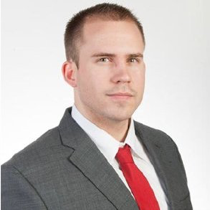 Abstract: One of the most common and important problems in the engineering industry is, arguably, to optimize a black-box expensive-to-evaluate function given a strict budget. The function can represent a real-world experiment or a costly simulation code. Specifically, given a set of potential power plant layouts, how do we find the best layout defined against a set of Quantities of Interest? Given a steam turbine, how do we configure its geometry to achieve the best efficiency? How can we optimize the life of a machine by knowing its design variables and how they connect to damage? Given a set of Computational Fluid Dynamics simulations, can we optimize a blade structure for cooling? The problem of course extends to a broad range of other industries and academia as well. As a different example, borrowed from materials discovery, consider a set of binary alloy lattice points: Which atoms should be placed on said points to discover the ground states? Surely, for all these cases, the faster we achieve high-quality optima (ideally global and robust) in terms of resources, the lower the overall cost.
Abstract: One of the most common and important problems in the engineering industry is, arguably, to optimize a black-box expensive-to-evaluate function given a strict budget. The function can represent a real-world experiment or a costly simulation code. Specifically, given a set of potential power plant layouts, how do we find the best layout defined against a set of Quantities of Interest? Given a steam turbine, how do we configure its geometry to achieve the best efficiency? How can we optimize the life of a machine by knowing its design variables and how they connect to damage? Given a set of Computational Fluid Dynamics simulations, can we optimize a blade structure for cooling? The problem of course extends to a broad range of other industries and academia as well. As a different example, borrowed from materials discovery, consider a set of binary alloy lattice points: Which atoms should be placed on said points to discover the ground states? Surely, for all these cases, the faster we achieve high-quality optima (ideally global and robust) in terms of resources, the lower the overall cost.
Towards answering these questions, at General Electric Research our team has developed and maintain an industry-strength Efficient Global Optimization scheme called “Intelligent Design and Analysis of Computer Experiments” (IDACE) which builds on a time-tested Gaussian Process meta-model called Bayesian Hybrid Modeling (BHM) originally built from Kennedy O’Hagan’s work.
Having introduced the BHM/IDACE framework, we present in detail a set of successful BHM/IDACE industry case studies and compare to other optimization approaches such as Genetic Algorithms. Finally, we go on to discuss a range of recent modifications and enhancements to these tools all driven from real-world customer needs.
Short Bio: Jesper Kristensen works as a Lead Engineer in the Probabilistics and Optimization team at General Electric’s (GE) Research Center in upstate New York. The team is managed by Dr. Liping Wang. He joined the team in the fall of 2015 as a research engineer. Among other projects, he is currently in charge of a $1MM project leading six engineers to ensure GE stays ahead in Probabilistic capabilities including, but not limited to, meta-modeling, optimization, uncertainty quantification, and uncertainty propagation. He is also the project leader on multiple damage modeling efforts to create Digital Twins of steam turbines.
Jesper is a graduate of the Technical University of Denmark (DTU) and holds a Ph.D. from Cornell University in Applied and Engineering Physics advised by Prof. Nicholas Zabaras. His work has generally focused on surrogate modeling and on advanced optimization methods such as adaptive sequential Monte Carlo and Bayesian Global Optimization for improving materials discovery and test cost reduction.